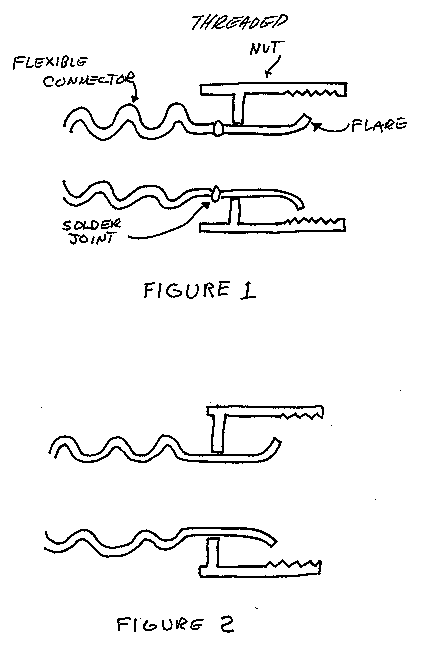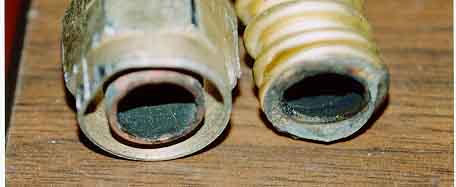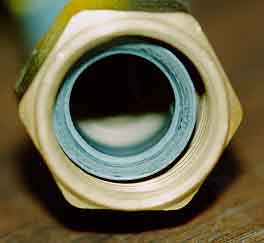
design where the corrugated flexible brass tubing is soldered to the end flare. The end flare is the mating surface with the appliance fitting and is secured by the threaded nut. Apparently, over time, the solder joint fails and a crack forms at the solder/brass interface. Newer connectors do not have this reliability problem.

Figure 3
Figure 2 is a cross-section of the more modern connector with a flare that is formed as an integral part of the connector. The absence of the solder joint enhances flexible connector reliability.

Figure 4
Figures 3 and 4 show two different solder joint connectors that failed causing an accumulation of natural gas in a home and an explosion. The characteristic solder fracture surface is apparent in each of the connectors. The flexible connectors showed little sign of excessive bending or strain. In each case the connectors were over 30 years old.

Figure 5
Figure 5 is a photograph of a modern flexible connector with a protective coating. Figure 6 is an end view of the integral flare. Figure 7 is a view of the manufacturer identification band.

Figure 6

Figure 7
FOR TECHNICAL ARTICLES CONTACT CLAIMS MAGAZINE AND ASK
FOR A REPRINT OF A PAST TECHNICAL NOTEBOOK ARTICLE
CLAIMS MAGAZINE
BACK TO C. ROBERTS CONSULTING ENGINEERS HOME PAGE,
WWW.CROBERTS.COM
WWW.CROBERTS.COM